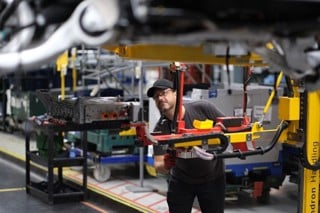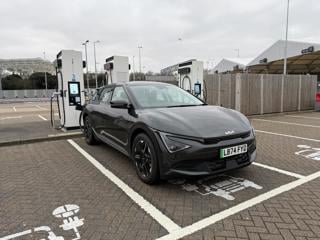A call for evidence to examine options for restricting local authorities from generating cash surpluses from prosecuting traffic contraventions will close on May 25.
The enforcement powers enable councils to issue penalty charge notices (PCNs) for moving traffic restrictions including: no entry; no left or right turn; prohibited vehicles; unlawful entry into box junctions; and driving in mandatory cycle lanes.
It aims to help free up police time while helping councils to reduce traffic congestion. However, the Department for Transport (DfT) says that enforcement should be undertaken proportionately and not used as a means to raise revenue.
The call for evidence is gathering evidence of current practice to inform possible policy proposals and explore options for restricting a local authority’s ability to generate surpluses from traffic contraventions.
In his ministerial forward, secretary of state for transport, Mark Harper, explained that councils have powers to enforce traffic regulations in order to ensure that roads are safe for all users and that people can move about without undue interference.
However, he said: “They are not an alternative way for local councillors to raise taxes, or decide who gets to travel where.
“This call for evidence looks at an issue that even good councils, doing the right thing, are sometimes accused of – the suggestion that traffic management measures with penalty fees attached are there to raise money from motorists more than anything else.
“I want to hear the views of local councils, but also motorists, motoring organisations and the public in general on this issue.
“Should Government remove any suggestion there is a ‘profit motive’ for local councils – such as by requiring any surpluses that councils might generate from new charges to be repaid to His Majesty’s Treasury – after the costs of enforcement have been repaid?
“This seems an appealing solution – and is effectively how speeding fines operate already – but are there unexpected considerations that we should be considering?
“I would encourage everyone with an interest to have your say and ensure your thoughts are taken into account.”
Since 2003, London councils have had moving traffic enforcement powers and the decision was taken in 2020 to make them available to local authorities elsewhere in England.
If they want to use them they need to apply to the secretary of state for transport for permission. Only then can they begin enforcement using approved camera equipment.
Statutory guidance requires that for the first six months of operation, councils issue only warning notices to first-time offenders. This also applies to any new camera location.
So far, 52 local councils outside London have got these powers.
Some drivers are concerned local authorities use PCNs too liberally, not to make roads safer and easier to navigate, but to raise revenue.
In London alone, more than seven million PCNs were issued in the year ending March 2022, but in the 40,000-plus cases where drivers appealed, just under half (43%) were overturned.
The Government says that the call for evidence will help it to establish a clearer picture of existing local authority practices as well as gathering ideas for how to make sure enforcement is proportionate and fair.

























Login to comment
Comments
No comments have been made yet.